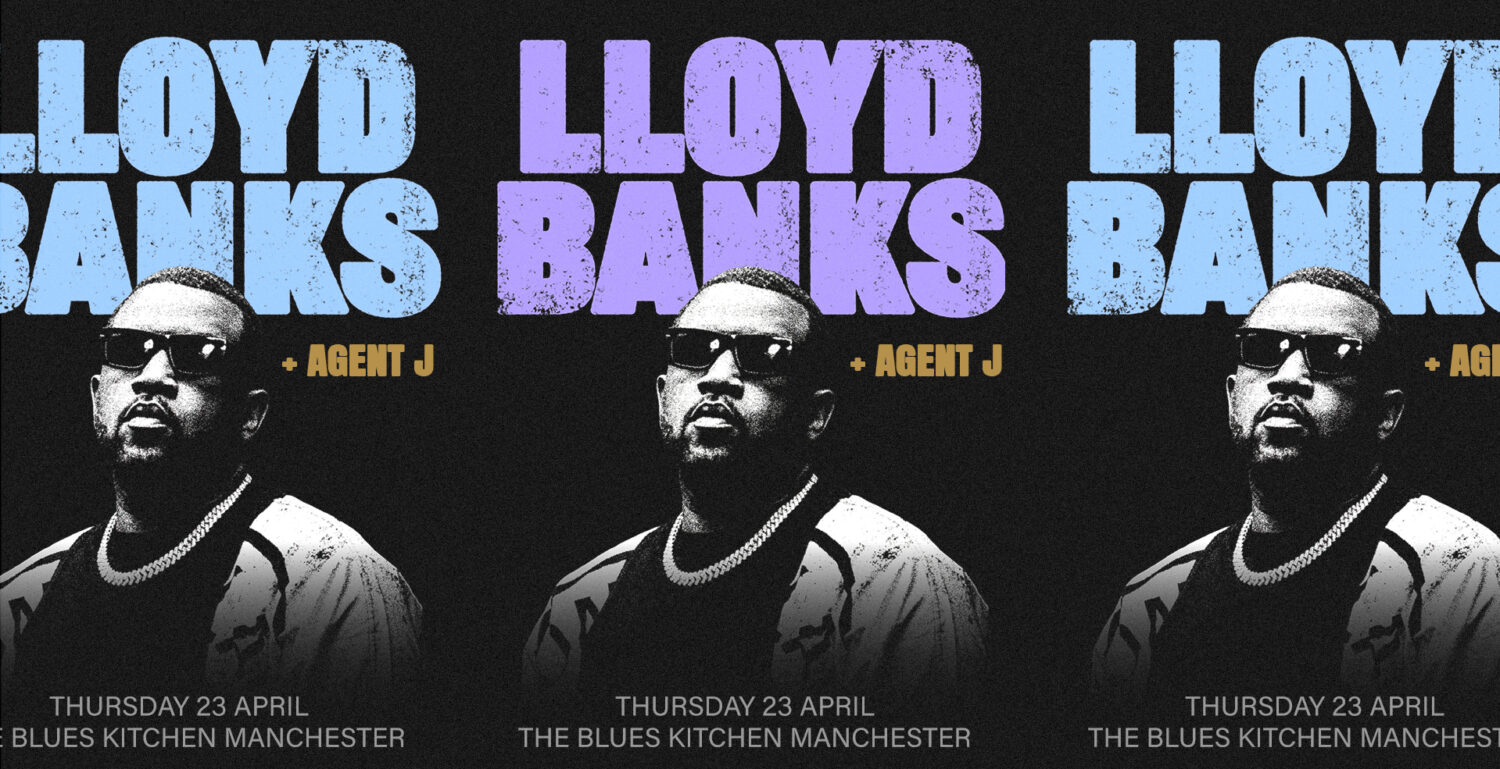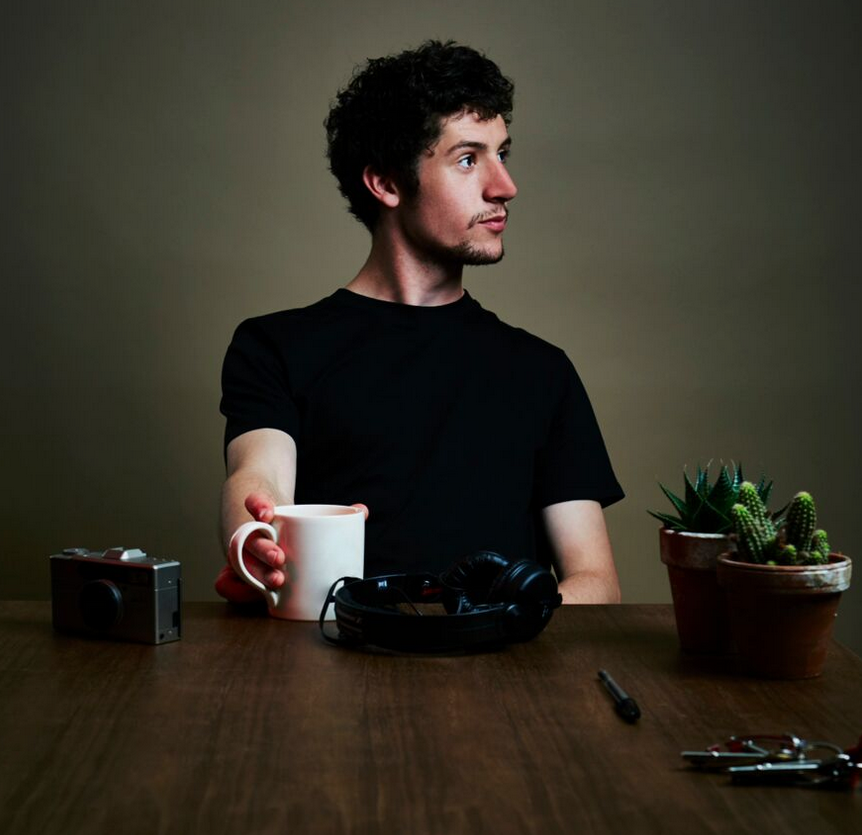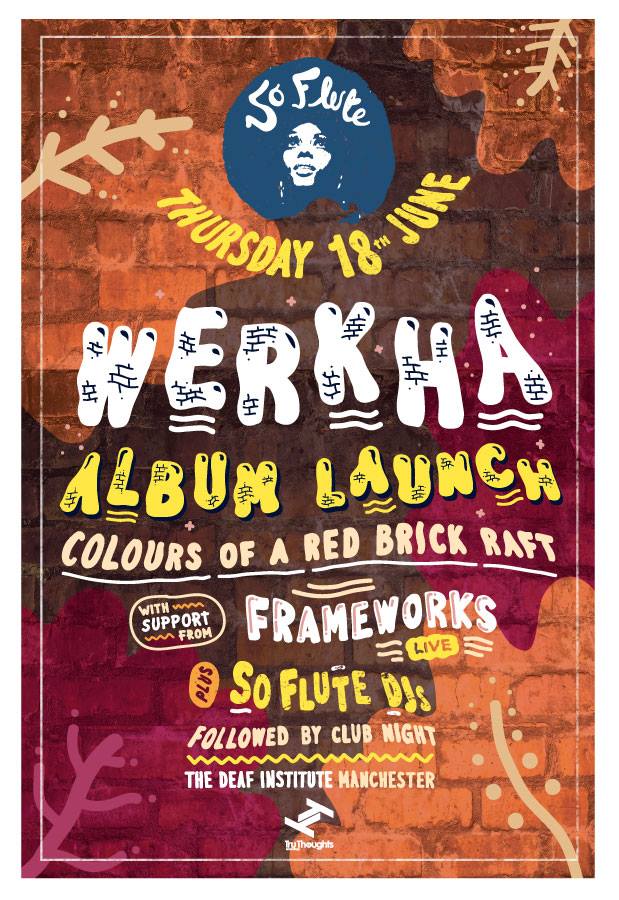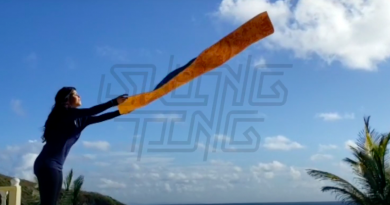Interview: Werkha – pushing the raft out
This is an extended version of an interview done for Now Then Magazine – read the original here. Thanks to Now Then for linking back!
Tom Leah, aka Werkha, had a very large 2014, combining the release of his debut EP, Beacons, for Tru Thoughts (following a track on a 2013 Gilles Peterson Brownswood compilation) with accompanying Bonobo on his European tour, learning much in the process. His first album, Colours Of A Red Brick Raft, is out this week and features long time collaborator Bryony Jarman-Pinto. Having moved to Cumbria from Manchester when young, Tom returned to study in the city and continues to make his mark in various musical circles, not only through his own musicianship (make sure you get to the album launch on 18 June at The Deaf Institute) but also through DJ residencies for So Flute and Levelz.
We went for lunch at new Manchester joint Tariff and Dale to chat about the new album, and some other stuff.
Main portrait: Dav Stewart
Buy Colours Of A Red Brick Raft on Bandcamp, iTunes and from the Etch shop.
The album’s ready to drop, how are you feeling?
Good! I don’t think it’s something I would’ve anticipated a couple of years ago, to be in this position now where I’m having an album come out on a label that I grew up listening to, and my own five piece band to play it. It’s been a long process of getting to that point as well, but I’ve been prepared to put the work that’s needed into it, as I see it anyway. Especially with the album, I wanted it to be about something that wasn’t just making an LP’s worth of music, I wanted to think about how it was going to be formed and propped up. The live set was always in my mind, and is actually a more recent development than the writing of the album itself, in a way that I ended up approaching the album instrumentation wise. I got a live kit on most of the tracks in the end, there’s a lot of strings in there and my guitar is a constant feature, a fair bit of bass guitar. I am pinching myself. Ten years ago if you’d said I would be in this situation I would’ve completely dismissed it. It feels good, I’m looking forward to it as well.
What have been the benefits of signing with Tru Thoughts?
I was pretty excited when I first went down to speak to them, I knew I wanted to say ‘yes’, but it’s obviously sensible to have conversations about what we were agreeing on. I went down again just after I signed, and they were referencing other artists and their approach to work. Like Quantic, who is a massive influence for me in terms of being one of the really stalwart producers who’s got a constant and consistent output. He’s always there and that’s what I admire, that ability to keep going. So when they mentioned the hard work that he would put in, full-time job, then to the studio all night, then back to the job, constantly pouring the effort in to get his music projects off the ground… so with Tru Thoughts with me pouring that effort in, I get that back from them in all sorts of aspects. They have an interest in investing more time and effort in me if I give that back. It’s a really nice, trusting relationship and they’ve been massively helpful in distribution, getting my records around the world and into the hands of different people, into Bonobo’s hands. For the tour last year he had a bunch of names in a hat or something, and they managed to wedge my name in last minute.
Because that easily could’ve been a Ninja Tune artist.
Yeah, so there was no obligation from anyone for me to be included in that. Obviously Bonobo and Tru Thoughts have got their own history as well. So that was quite quickly seeing a really positive return on having joined this label, and that (tour) had a massive impact over the past year, that changed quite a lot (for me) really.
When you were supporting, what kind of set up did you have?
I was just doing my solo live set, which is me on an MPD and playing and live looping guitar with that. I’ve got the samples and stems stripped down. There’s no playhead going through Ableton or anything, it’s not going to trigger itself, it’s all got an element of risk with playing a live instrument too. Anyway, they only told me about the tour three weeks before or something, and I’d slightly exaggerated where my live set-up was up to at that point. I actually didn’t have an MPD, so I had two or three weeks to take my productions and turn them into half hour sets with an MPD and guitar. That was one of THE steepest learning curves!
Were you fine-tuning on the tour?
Yeah, I was. At each gig I changed it, I was trying different things. Some things worked and some didn’t, but it was wicked. I got really into and it culminated at the last gig, it was Krakov in Poland, where everything came together. Two weeks of gigging every day in front of thousands of people, and that one just went perfectly, which was cool because it was the last night and my first experience of a big tour. The crowd was wicked, so I was dead chuffed with that.
Would you describe the sound of your first EP, Cube & Puzzle, as very different to the Beacons EP and now the album? It drew comparisons with James Blake in the press release.
(The track) ‘Cube & Puzzle’ itself, when I made that EP that track wasn’t even supposed to be on that EP, it was just summit I was messing around with. The other tracks on it, ‘Le Roitelet’, which has my sister singing on it, that was recorded back home in Cumbria just before my last year at university. ‘Bottle Trip’ and ‘Le Roitelet’, they were the ones that were ‘my style’, that’s what I’m interested in, they’ve got more instrumentation in and stupid little recordings like beer bottles opening… Cool Kid Music wanted to make ‘Cube & Puzzle’ the main track of the EP. I kind of trusted that decision. It was cut both ways: it was a good decision in terms of it making a little bit of headway as a track, but ultimately I’m not gonna make a track like that again. It was just kind of a one-off bit of fun which was never actually intended for release.
So it was more of a different style rather than a progression in sound?
Yeah, just more of a different style. Despite that, on the other two tracks on that EP there is that synthesis of stuff, so… I am keen on the idea of a progression of sound as well, I think that’s naturally what happens. It’s not been so much of a progression in that I’ve learnt how to play other instruments or anything, it’s more that I’ve progressed in having the confidence in being able to execute what I want with instruments, if that makes sense. So rather than resorting to synths here and there, or big bullish bass music bass lines, I’m much happier and more confident now to explore musicality that I’ve always been interested in really. And actually drawing influences more directly. Not being scared of plugging away on the bass guitar for a few hours and putting that in the songs.
What was your first instrument?
I started learning piano when I was four or five, and did that classically. I picked up acoustic guitar at 10 or 11 and did folk stuff, then picked up sax and did jazz piano. I ended up playing bass in this music group up in Cumbira, which I always talk about in every interview. Bryony (Jarman-Pinto), who’s on several tracks on the album and is on the last EP (Beacons) is in it too. It’s an organisation, well, community music thing called BlueJam Arts. There’s no motive behind it, it’s not religious or anything…
Is this through Bryony’s mum?
Yeah, so her mum ran that, and it was with Bryony and a housemate Tom Burford, who’s producing as Contours (he’s chatting about releases with a label in London at the moment), and other people that have gone on to tour in America and stuff, and it’s just this small group of people from Penrith in Cumbria.
What was the catalyst for you wanting to release in the first place?
I hooked onto that bass music scene a bit, I always thought it was a little bit, sort of… immature. But it was fun! Then I think it got shit quite quickly. It sounded like something new. It didn’t sound like something that was going to change the world, but it was exciting. Also, it was the last year of my three-year music degree, and I’d been plying away at trying various things over the course of that degree like running nights, exhibitions, open mic nights, trying to DJ… I had a year of uni left, so it was a great time to try and do that sort of thing because you don’t have to be employed. I thought I’d give it a crack and it came off quite nicely, that was good and it’s what’s enabled me to keep doing that ever since, actually.
Brendan Williams, who produced Matt Halsall’s last few albums, he’s tutoring at Salford Uni now, and also produces Dutch Uncles, he’s been my person that I’ve learnt from, basically. I didn’t know what music production was until I was 19, had never really been exposed to it. I just learnt loads from him, and he’s exposed me to that side of things.
Are you happy with how you’ve managed to produce the album, then?
I’ve relied on myself solely up to the mixing stage, then I’ve worked with Brendan and Joe Reiser, who both produced that Mercury-nominated GoGo Penguin album (v2.0, Gondwana Records, 2014). Again, that’s just a really nice group of people. Being around them, the Dutch Uncles and GoGo Penguin over the last few years, and Matt Halsall with Gondwana, they’re just such a sound bunch of people who between them, have so much experience. I’ve learnt a massive amount from that. There was quite a lot of instrumentation to sort in the end, and Joe helped me engineer sessions with the strings and the drums. I still feel like I’m learning a lot, so this is kind of, the album, a good opportunity to punch above my weight and learn from it. I have a really good idea what I’m doing next now.
Were you worried about making it accessible to everyone, to the general public?
Not really. All I was thinking of was, I don’t want to make an album where there’s no links to what I’ve done previously, but I do want to make an album that is more musical. I think that’s why at the start of the album, it’s trying to directly reference a follow on from previous stuff, it’s synthy and a bit harder hitting, and by the end it’s strings, double bass and harp. It’s trying to paint a bit of a transition really, I want to keep incorporating fast-moving music and I love the way in which you can manipulate music to have a different impact on people and stuff. I think it would be dangerous to think of it in terms of, what do people want? People don’t what they want, I didn’t know what I wanted when I started.
The first track I started, I wrote on the piano and it was really jazzy. I thought, how the hell is this going to work, compared to all this bouncy, 140 bpm or housey stuff I’ve been doing? I suppose the premise is, I’ve done this loud stuff, now I’m writing jazz piano, how am I going to bridge that gap? It was an interesting process, and quite organic. A lot of things happened that I didn’t expect to happen. For example, there was one track I was quite happy with then I decided to invite Danish singer Alex Rita to sing on it (‘The Invincible’). When you invite someone in on a collaborative level like that, you’ve just got to accept that it’s not going to be what it was – you’ve got to let the track go. And out of it, I got a track that I liked more that in the first place, but I just couldn’t have fathomed that it was going to be that style of track.
What’s the process like with Bryony?
We both do it all together, because we always have.

How long have you known her?
Since I was about eleven. We’ve been playing music together in whatever capacity for a long time. The process of working is an important part, and with Bryony it’s good because we don’t panic and we don’t jump at the first idea, we get ideas down and keep going and just work through it. And something comes from it as a result of the process of working together, it captures something between you which is really cool. That’s what I do like about working with other people, rather than like, ‘sing a line over this’.
What can people expect from the album launch show? (Buy a ticket here)
We’ve got Matt Davis on the drums, he played with Matt Halsall and Paper Tiger, and was taught by (The Cinematic Orchestra’s) Luke Flowers. He’s on kit and I’ve managed to delegate some samples to his SPD. I’m on keys, MPD, looping guitar and playing bass as well. I’ve got Alan Keary, who produces as Shunya, he’s on electric bass. Also Simmy Singh, who’s in the Halle Orchestra. All these musicians who can play better than me! But I’m happy. She’s on viola and violin, then Bryony’s singing on her own out the front.
Does Manchester’s classical world support the electronic side of things as well?
I can see it from a lot of different angles. I see a lot of people coming out of RNCM, well I can’t generalise, but seem to be a little disheartened with contemporary classical stuff, or maybe it’s just because it’s a straighter way to tour. When they get to break out… I know the GoGo guys went to the RNCM, they love Aphex Twin, and now they’ve got the opportunity to explore those inspirations through their own stuff, that kind of newfound freedom. It is a melting pot… the jazz and electronic wedge in this city is really interesting. The Dutch Uncles guys like electronic stuff, I was at Golden Teacher the other night, and they were down there.
How do you describe that melting pot of the city to people who aren’t from Manchester?
The size and nature of the city, I’ve always had the impression it’s far more intense musically, per head, than London. London has got more going on because it’s bigger, but I feel like Manchester is really condensed so you naturally get these interesting crossovers. I don’t know how to describe it, though!
Do you think tempo is important? There’s been a definite shift back to housier vibes in recent years.
I can’t speak for everyone else, but I listened to a lot of RJD2 and Gotan Project when growing up, quite chilled sort of stuff. All of that was rooted in that hip hop / breaks sort of feel, but there were no restrictions. I feel like that link permits you to explore different fields and tempos. With Levelz, they’re definitely hitting a sort of slight disco tip as well, there’s a slightly soulful element to that and again that kind of links in with less restriction on tempo. I think all of that music, everything in Manchester, is that it is a fertile breeding ground for organic music to come through and develop from the city. Tempos in music are nice references, but I would get bored if I was listening to the same tempo all the time. It’s interesting to see how it morphs and changes.
What have been your favourite tracks to perform so far, at this stage? Or even favourite songs on the album?
‘Highwaves’ has two bass guitars on stage. When I thought of that when I was writing, I thought it might look a little proggy and audacious but we’ll give it a go. That was one of the motives for writing two bass lines for that tune, to be able to perform and for people to go, ‘you don’t see two bass guitars at a gig every day’. In terms of my favourite… because it’s one of the last ones I finished writing, ‘Border Kite’ I’ve enjoyed, that’s felt like a nice indication of how I can use instrumentation and where I might be able to take stuff in the future.
That’s second to last on the album, was the final track written last?
No, actually. The piano in ‘A Revolution Blue’, that was the first thing I laid down and tried to knit that into the sound of the rest of the album, which I hope worked.
Do you have a desire to go and hear music in other setting around the world?
I am thinking of doing that at some point in my life, but under my own steam really. I’ve always been quite well-travelled, my family cut back on things they didn’t think we needed growing up so we could go to a new place every year. It was always steering clear of resorts and getting stuck in to the nitty-gritty of a country. We went to Mexico when I was 12, walked up a 4000 metre volcano and started going doolally, that was good. Also we went in to the south, into the jungles, where the Zapatista rebel movement was. After a day of driving along completely knackered tracks through the jungle, we got to this checkpoint of guys with AK47s and balaclavas, who were all perfectly nice. We stayed there, sleeping in hammocks hanging off the rafter of the village hall, for a couple of nights. That was a just a structure with a corrugated iron roof, where they did everything. They had meetings, that’s where the kids were educated…
And they were happy for you to stay in the village?
Yeah, it was just for a couple of days and they took us to a nearby lake where you could see over to Guatemala. I’ve told that to friends and family, and they’ve questioned who would take their children into that setting… those sorts of things growing up, going to places like that, that taught me loads. I don’t know how that necessarily ties into music, but that sort of experience made me think it’s always important to keep changing, moving around. It’s important to keep refreshing yourself.
Tell me about this ale you’re launching with the album.
ShinDigger, this brewery, they approached me about it.
As fans of the music?
Yeah, and that’s kind of it really! They’re Manchester based. They had a crate of beer backstage at, I think, Parklife last year and Si Bonobo loved it, they said it came to them as a good idea to collaborate. I don’t actually know where it will be exactly, but it should be at the album launch! I want to get it in places like Folk (in West Didsbury), nice little places. There’s a couple of places in Penrith which will hopefully get it. It’s quite a novelty thing, I never thought I’d have my own ale! I went drinking with them, it was the best market research I’ve ever done. All different types of ales, pale ales, stouts… we just went through them. Then another session a week later with more detail about the types of drinks we’d put aside. I thought, instead of doing a pale ale, of which there’s loads, it would be quite nice to do something very drinkable but quite different. We’ve gone for a Red Ale, as a reference to the Manchester red bricks. I like associations like that. The album is like that, some of them are obvious and some aren’t.
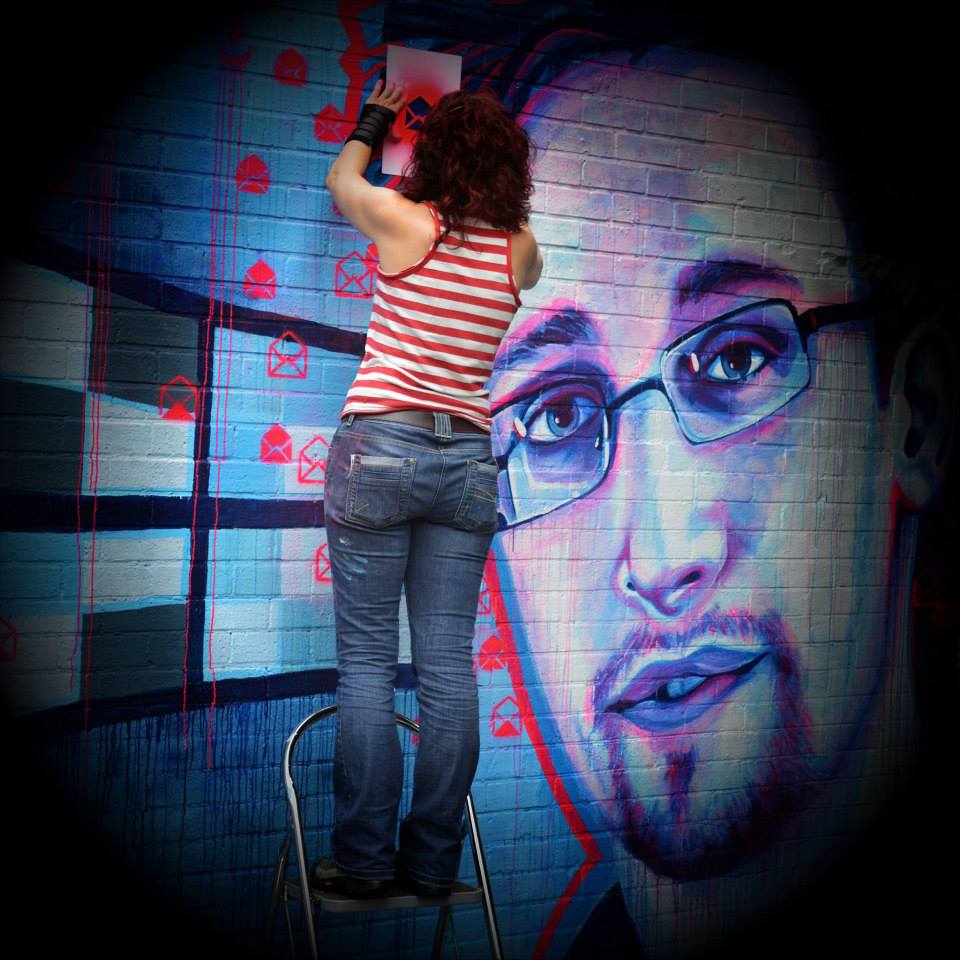
The tune ‘A Revolution Blue’ was because I was sat, eating a sandwich in Rustica, staring at some artwork of Edward Snowden (by artist Sarah Lynn Mayhew, aka SLM Art as part of Manchester’s OutHouse project, bringing art into the city). The idea of a revolution of truth, of day to day understanding of things, was something I could see as a viable revolution of sorts for our generation, that would be really important. The idea of getting the truth out there, and that being something we should really strive for… he was painted in blue, so that was a direct reference.
‘Border Kite’, the rhythm and speed were inspired by railway tracks, being on a train from Germany to Poland, on the Bonobo tour. We were going over the border and kites, the birds, were flying in the air. Some are just names which remind me of being in a particular place (when I thought of the music). It’s not hard to come up with names, it’s hard to make something of them. You might hear a rhythm in the way that door shuts over there. I would like to make, one day, a concept album of sounds.
What’s next?
I remixed Nubiyan Twist recently. I’ve just finished an initial draft for Eska, that was fun. At the moment I’m really busy sorting out the live stuff. I’ve really enjoyed doing remixes, going through those motions and being creative with other people’s ideas. I’d love to release a ‘remix tape’ one day. I’m five or six ideas in the new album. I’ve got the appetite for the process of making an album and I really want to do it again.
I’ve been meaning to ask, where did the name come from?
I thought of it when I was going up a hill once. I like the idea of spelling a word as it sounds, having a little bit of fun with that. The actual ‘Werkha’ itself is a way of reminding me, that I’ve ploughed so much effort into it every step of the way, and I’ve treated it like a trade. That’s quite important to me, to keep working. That sort of vibe, really. It’s quite nice having a separation between your actual name and something you produce. I don’t treat it like a job because I am obsessed with it, but then I can have some degree of separation in my brain.
